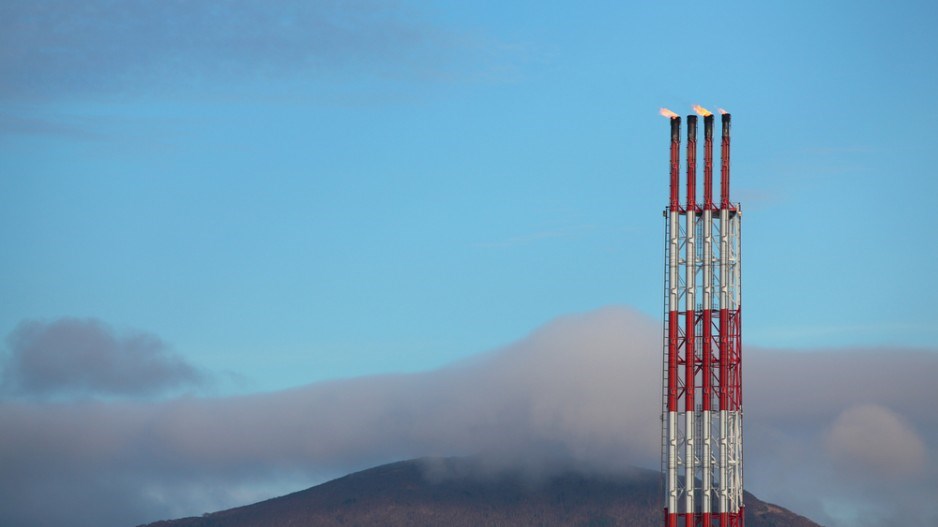By Jody Wilson-Raybould
When members of the Lax Kw’alaams Band rejected a $1.15 billion offer in exchange for their consent for the Petronas-led Pacific NorthWest LNG (PNW) proposed liquefied natural gas project on Lelu Island near Prince Rupert, many people were surprised.
Many assumed such a significant amount of money would be accepted.
But the people who would be affected by the project – and have rights to the land – had different ideas. The community members rejected the project and their governing body responded, sending an unequivocal message that “this is not a money issue: it is environmental and cultural.”
Every indigenous person has a homeland. Typically people who are attached to, live on, and survive off the land take a different perspective to land management or resource development than those who do not or are just passing through. The Lax Kw’alaams stated that the significance of the Skeena River estuary to the First Nations cannot be overstated.
“[They are] bound by the traditional law of all Tsimshian and upriver communities to protect the fisheries resource – including the salmon and all other species – for future generations.
“This is a first line of defence in respect to the aboriginal food fishery, a fishery which has sustained coastal and upriver First Nations through the millennia.”
For them, the right balance between economic development and environmental stewardship has not been found.
At this point, Lax Kw’alaams community members are not saying no to the PNW project, but no to the location. They are not against development: there is significant economic activity within the community in the resource sectors, including logging operations on an industrial scale.
Nor have they made this decision lightly. The Lax Kw’alaams have engaged with PNW since 2011 and have consistently articulated that the proposed LNG terminal must meet environmental safeguards appropriate for an estuary as important as the Skeena.
Even the Government of Canada has recognized the importance of this specific site: a 1977 LNG proposal by Dome Petroleum was rejected for the same reason this site is unsuitable now: major fisheries values. First Nations have known this for generations.
I, along with many others, have talked about recognizing the importance of balancing our responsibility to protect the environment with the need to grow our economy. A strong economy is a means to an end and not an end in itself. It must lead to a better quality of life for all Canadians. Economic policy must be tied to social policy that speaks to the type of country we want to live in. We cannot ignore how our economy affects the physical and social environment.
Perhaps the biggest struggle we face in B.C. and Canada is what to do about the parts of our economy that rely on oil and gas exploration and development.
As Canadians, we are not so naive as to think that somehow we can just turn off the tap and that there are easy choices to be made.
Few Canadians would argue there should be no natural resource development.
Where there are divergent perspectives is on the scope and scale on which it takes place, the manner in which it is regulated and, ultimately, who benefits.
As a country, we have some big decisions to make about our future and we need to be strategic.
To develop an effective strategy we need a more robust conversation about what we mean by sustainable resource development for the future. We need to invest in science and research. And we need to have openness, transparency and clear rules surrounding environmental assessments and the approval for major projects.
Moreover, unlike in the past, aboriginal governments are going to have a greater say, and it is unlikely major projects will proceed unless aboriginal interests are taken into account.
PNW has yet to make a final investment decision and is now exploring options to deal with environmental concerns and potentially move the facility.
Of course, this could affect profits, but it is the cost of doing business in an environmentally sustainable way that, in the long run, ensures we have the type of country we want to live in and which is “profitable” to all.
We are at a crossroads: we are balancing the economic needs of the present against those of future generations.
We must find the balance between fuelling our current economy and protecting our environment.
The Lax Kw’alaams – among many other First Nations peoples, and indeed many, if not most, Canadians – are trying to find this in a methodical, thoughtful, democratic way. •
Jody Wilson-Raybould is the federal Liberal candidate in Vancouver Granville and regional chief of the BC Assembly of First Nations.
To comment on this story, click here .




